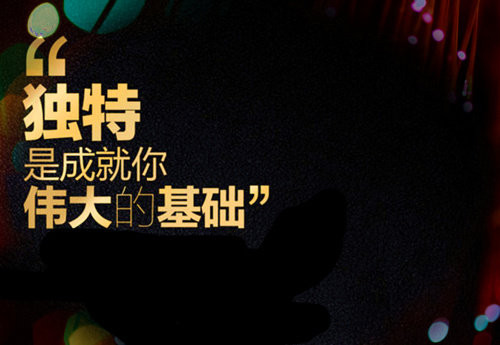
为朋友的未来出主意的作文 英语【一】
When you look back on yourself in the past – 10, 20, 30 or more years ago – it’s surprising to see how much you have changed over time. Your experiences, your friends, your family and your work have all shaped who you are right now. But where will you be in another few years? How will you have changed? Reflective writing in your journal is an excellent way to think about what you want out of the future.
当你10年、20年或更多年后回顾过去时,你会吃惊地发现,随着时光的流逝,你也发生了很大的变化。你的经历、朋友、家庭和工作造就了现在的你。但是再过几年你会在哪里呢?你会如何变化呢?这样反思性的写作,会是思考未来你想要什么的一种好的方式。
You may have already written a letter to your younger self before, conveying all the wisdom and perspective you wish you had had at the time. Now consider the opposite end of the spectrum; what would you say if you wrote your future self a letter?
你也许以前试过给过去的自己写信,向年轻时的自己传授一些人生的智慧和观点,你希望那时候的自己就能知道这些。现在我们换个角度看问题,如果让你给未来的自己写封信,你会写点什么?
Just imagine writing a letter to your future self 5 years from now, then opening it at that exact moment 5 years down the road to see how much of it resonated with you. It is a useful supplementary tool to be used in goal achievement, because when you write the letter to your future self, it helps crystallize exactly how you anticipate yourself to become at that specific moment down the road.
想象一下,给5年后的'自己写一封信,当5年后你打开那封信时,你会产生多少共鸣。这是实现目标的一种有用的辅助工具,因为当你给未来的自己写信时,你会慢慢理清希望自己在人生旅途的那个特定时刻变成什么样子。
As you read the letter in the future, you can assess how many things match up (or not vs. your expectations in the past and think about why that’s the case. Often times, the goals we set and our goal achievement process are subjected to a lot of changes along the way, due to varying obstacles, unanticipated circumstances and changing priorities. The letter gives you a macro-view of your initial vision and lets you recognize how your current vision differs from the past.
当你在未来读这封信时,你可以看看有多少事情是像你过去期望的那样,你也会思考为什么会这样。很多时候,我们设定目标在实现的过程中会受到沿途中各种因素的影响,因为会遇到各种各样的困难、各种意外情况并需要不断调整优先级。这封信能让你从宏观的角度上去看自己最初的愿景,让你意识到自己现在的想法和过去相比有多么不同。
When you open the letter in the future, you as your future self gets to compare how you used to be in the past and compare with how you are currently. This lets you see in totality how much things have changed since then – and this can be a really intriguingexperience. It’s interesting to just see how much you have grown/changed since you wrote the letter.
当你以后看信时,你会把过去的自己和现在的自己进行比较。这会让你看清从写信时起你发生了哪些变化,这种体验是非常有趣的。光看看从你写信开始发生了哪些变化就很有趣了。
为朋友的未来出主意的作文 英语【二】
人都说名师出高徒,真是这样吗?当某人出名时,除了赞美他而外,总回加上一句:“是某某名人的高徒,名师出高徒嘛!”真是这样的吗?
孔子,在古带被封为“至圣”,可谓是名人了。出自他名下的高徒的确很多,而他的一个第子宰予,懒惰成性,成天贪睡,整日昏昏沉沉,致使日后留下了“昼寝宰予”的成语,意指人之懒惰。空子也曾对他发出了“朽木不可雕”的叹息,若名师出高徒,那宰予有应是什么样的高徒呢?
诸葛亮有“卧龙”之名,闻名一时。“得卧龙既得一半天下”也非戏言,可是蜀后主刘禅,虽得诸葛亮的悉心扶持,但也难逃亡过之厄运,以至后世留下“扶不起的刘阿斗”这样的笑柄。若名师出高徒,刘阿斗岂非贤明之君?
鬼谷之,春秋时著名的隐士,博学多才。闻名天下的《孙子兵法》的作者孙膑就出自他的门下。他的另一个弟子庞涓却阴险毒辣,因为嫉贤而投敌求荣,陷害孙膑残废。虽然后来被孙膑设计***了,但作为名人鬼谷子的弟子,恐怕对“名师出高徒”的莫大的讽刺吧。
看来,名师为毕出高徒!
有了好的老师,还需要学生的勤奋。老师要悉心教导;学生要刻苦专研,认真学习。否则就酸有在高的老师,恐怕也教不出好的学生吧!也讽刺了一句话:“没有学不好的学生,只有教不好的老师。”也是要分条件的。名师只是外因,勤奋才是内因,如果没有内因的作用,名师确实未必出高徒。
为朋友的未来出主意的作文 英语【三】
City traffic is a big problem in some cities in the world, especially in big cities. To solve the problem, someone are in favor of developing buses as means of city traffic. Others are in favor of the subway. Between them,which is the better choice?
在世界上的一些城市中城市交通是一个大问题,尤其是大城市。为了解决这个问题,有人赞成发展公交车作为城市交通的方式。另一些人则赞成地铁。在它们之间,哪个是更好的`选择?
It is easier to take buses as means of city traffic than the subway trains because buses don't need special roads. But buses have also many disadvantages, some of which are very serious. They may cause louder noise and more traffic accidents. Buses give rise to serious air pollution and traffic jam. In order to stop what buses cause, a large amount of hand must be used to widen the roads. On the contrary, the subway train is of more advantages. Except the difficulty and high cost of building the subway, it is superior to the buses in many aspects.
公共汽车作为城市交通方式要比地铁容易,因为公共汽车不需要特别的道路。但是公交车也许多缺点,有些是非常严重的。他们可能会导致噪音和更多的交通事故。公共汽车也导致了严重的空气污染和交通堵塞。为了阻止公交车带来的后果,必须用大量的人力来拓宽道路。相反,地铁列车有着更多的优势。除了建设地铁的难度和高成本外,在许多方面它都优于公共汽车。
Taking the advantages and disadvantages together into consideration,I would be in favor of developing the subway train as soon as possible.
把优点和缺点一起考虑,我会赞成尽快发展地铁。
为朋友的未来出主意的作文 英语【四】
In 2080, cars are going to be different. The car of new type is made from China. The motor is quicker than other cars. The car can be droved 500 kilometers per hour.
Computers are going to be inside every car. It is going to control the car. You don’t need to be worried about the red light.
The car is going to go on special tracks above the city. It would be not so crowded and noisy.
There is a special air conditioner in the car. In winter you can be warm there. In summer you can be pleasantly cool.
If you have this car, you will be very fashionable.
为朋友的未来出主意的作文 英语【五】
《伊索寓言》是一本家喻户晓的名著,全书都是蕴含着大道理的小故事。作者伊索出生在公元前六世纪的.希腊,童年的母亲常讲故事给他听;后来,他又离家到处游历,听到许多动物、鸟类和昆虫的故事。《伊索寓言》便是由他口述留下来的。
在这些妙趣横生的小故事中,有一篇《秃尾狐的坏主意》,令我印象深刻。一只有有漂亮大尾巴的狐狸趁着夜深人静时去农场偷鸡。结果,那漂亮的大尾巴被捕兽器夹断了,便成了秃尾狐。
之后,他经常受到同伴的嘲笑。平日也不敢出门,让他心里很难过。这时,他心里盘算着:如何让别人把尾巴剪得和他一样短?于是,他决定宴请大家,正当大家吃得很高兴的时候。秃尾狐说:”各位,我们的尾巴都粗大了,不论是觅食或是玩耍都不方便,不如把它剪短吧!”大多数的狐狸赞成他的意见。
这时,一位年长的`狐狸说:“你为了掩盖你的缺陷,不惜牺牲大家的利益,这样应该吗?身体上的缺陷不要紧,重要的是心理上不要有缺陷啊!”我觉得这位年长的狐狸说的太有道理了!
我们要避免自私自利、见不得人的好心态,在心中要存有一份爱心和善意,时常帮助别人,这样别人一定会受到感动而不会去嘲笑你外在的缺陷了。
为朋友的未来出主意的作文 英语【六】
"名师出高徒",事实真的全是这样吗?
我国古代思想家、教育家孔子,他"弟子三千,七十二贤",可见有两千九百名弟子都很一般,其中还有白天睡大觉的被孔子斥之为"朽木不可雕也"的宰予。就说"七十二贤人"真正算得上高徒的实际上只有子路、冉有、颜惠等十来个。由此可见,名师未必出高徒。古今中外有很多高徒也未必出自名师。唐代伟大诗人李白,在铁棒磨成针的启示下,奋发努力,终于成为"诗仙"。李白即便有师,也不会多有名气。美国著名发明家爱迪生,小时候因为爱提一些老师也答不上来的问题,最终被赶出了校门,只好回家由母亲教。可他努力学习,终于成了发明大王。
古今中外还有许多如爱因斯坦、高尔基、华罗庚一样自学成才的高徒呢。当然我们也不否认老师的作用,更不否认名师的作用,我们谈论的只是名师并非一定能出高徒。











